P RO S P E C T U S
2 02 5 - 2 02 6

P RO S P E C T U S
2 02 5 - 2 02 6

The British School of Bucharest has been rated consistently as ‘excellent’ in all areas by the UK Independent Schools Inspectorate (ISI) in 2018 and 2022. This is the highest possible rating that can be achieved after being inspected by ISI.
I am delighted to present to you the prospectus for Key Stage 5 because, at BSB, we pride ourselves on the broad range of subjects available for study in these final two years of education, the quality of our learning and teaching, the expertise and skill of our teaching staff and the high level of care and attention we invest in every member of our school community.
Key Stage 5 represents Years 12 and 13, and these two years are a vital time in a student’s education, as they provide students with an educational programme culminating in the A-level examinations at the end of Year 13 and the AS examinations in Year 12, at the half-way point in the course. The globally recognised Advanced Level (A-Level) is considered by many to be the ‘gold standard’ in education, as students typically study three or sometimes four subjects in depth, and the A-level qualification is the passport for students to continue to study at university or college level.
Our Key Stage 5 educational programme is exceptionally broad, and we set ambitious aims for all our students. The A-level is among a few educational programmes worldwide that allow students to choose subjects that best fit their passions and abilities and will complement their future study or career plans. These subjects include physical and practical subjects, the Creative and Performing Arts, Humanities, Business Studies, Economics, Media, English Literature and Language and Computer Science. We shore up our students' educational outcomes through a range of support programmes as needed, ranging from learning support, English as a Second Language, IELTS preparation or through our More Able and Talented programmes to ensure that all students are stretched and challenged academically. Our pastoral and counselling team provides care through the whole educational process with a gentle and guiding hand on each of our student’s shoulders to
help them navigate their way through life’s ups and downs.
At BSB, we also pride ourselves on the level of individual and tailored support and choice. Students begin Year 12 having made A-Level choices, a process which begins in Year 11. This process involves individual student interviews with Form Tutors, the Director of Studies, and Heads of Year, as well as careers and university guidance, coupled with parent presentations and frequent and open dialogue to assemble a curriculum fit for purpose and which plays to each student’s strengths and supports future aspirations.
Our extra-curricular, leadership and sports programmes at Key Stage 5 offer students a chance to pursue interests, develop intellectual curiosity, gain leadership skills and cultivate physical health through sports and physical activities and at the end of Year 12, a work experience programme allows students to become familiar with career choices and the ‘world of work’. Around the curriculum, we offer students a chance to extend and enrich, gaining recognised qualifications in speech and drama through LAMDA, leadership and fitness through the CSLA programme or intellectual, critical thinking and research skills through the EPQ programme.
Whether you are an existing or prospective BSB parent or student or simply wish to discover more about our education at BSB, I hope you will discover more about the exciting and engaging life that BSB offers at Key Stage 5.
I extend an open invitation to you to contact the Secondary team or myself to find out more or invite you to visit us at BSB, where a warm welcome awaits.
Jason Porter, Head of Secondary School



Welcome to the Key Stage 5 programme at the British School of Bucharest. Joining Key Stage 5 is the next stage in your education and career development.
You will:
• Already be familiar with the School and the way it operates, or if you join us, you will be welcomed quickly into our strong and supportive community;
• Have a programme of study that has been developed from your previous courses;
• Choose from a range of subjects recognised across the world;
• Be taught by teachers who can respond to your particular needs;
• Be taught in small groups, where you will receive personal attention;
• Develop a range of skills, including organisation and the management of time;
• Gain valuable leadership and public speaking skills through our comprehensive and varied curriculum;
• Receive guidance and advice for the next step of your career and university or job applications;
• Have the opportunity to take part in a range of enrichment projects and activities and be part of the school community.
Independent learning is an important aspect of life in Key Stage 5. You will have study periods: lessons which are unsupervised by teachers. You are expected to use the library, the ICT facilities and the common room to carry out private study in a responsible way and have professional conversations with your colleagues, making effective use of your time. Initiative is important in the world of further education and employment.
The transition from KS4 to KS5 is more than simply becoming a year older. As a Year 12/13 student, you are moving closer to leaving full-time education and will have already begun to think about future choices, careers and independent pathways. At BSB, we have a comprehensive pastoral programme to help you through each stage.
You will liaise closely with the Head of Key Stage 5, the Careers Coordinator and our University Guidance Counsellor, who will guide you through each step. Moreover, support and guidance occur daily through
student and teacher contact, both within and outside formal lessons. The School is in frequent contact with external agencies involved in higher education and recruitment. We will work closely with them to offer the opportunity for visitors and lecturers to visit the School and meet you as prospective candidates.
Every student at BSB will be involved in regular assessments and reviews, which are closely monitored by subject teachers, the Head of Key Stage 5 and senior teachers. You will receive regular reports to help assess your progress and guide your preparation for end-of-year examinations.
There will be individual interviews with the Head of Key Stage 5 and tutors at various times of the year to discuss your progress and a focused interview towards the end of Year 12 to assess the best-personalised way forward. The monitoring process will help teachers and the Head of Key Stage 5 to identify any study problems you may face and offer advice. Your parents will be invited to discuss your progress at the Parents’ Evenings; however, they or the teachers may make an appointment at any time if there is a concern. We want you to enjoy your time in Key Stage 5, and it is important that any issues are dealt with quickly before they have a detrimental effect on your attainment.
You will need to choose which Key Stage 5 courses you wish to study using the information in this booklet, taking into account your interests and strengths. As individuals, it is important that you carry out independent research into education and employment possibilities - it is your future you are working towards. You play a major role in planning for it. Many of you have benefited from work experience placements, which will have given you an insight into future pathways and possible careers.
At BSB, we will work closely with you to establish areas of interest and skill development related to future career pathways. You will be interviewed by your form tutor and the Head of Key Stage 5 regarding your course aspirations.
In addition to the academic curriculum programme, students have an extensive range of enrichment activities available. These programmes are designed to develop leadership skills and support or extend academic provision. At the start of the year, students entering Year 12 will choose between the Extended Project Qualification (EPQ), the London Academy of Music & Dramatic Art Speaking in Public Exam or the Community Sports Leadership Award (CSLA). Students without GCSE English will study IELTS in Year 12. These lessons take place during the school day in timetabled lessons.
• EPQ – this is a programme where students undertake independent research on a topic of their choice. There is a taught element to the course, and each student is allocated an EPQ mentor. During Year 13, the project is submitted for grading and, if successful, can count as the equivalent to an AS qualification.
• LAMDA – Speaking in Public exams prepare our learners for a task that daunts so many people. Learners write their own speeches, research the topics, create visual aids and present them from memory (although they can use notecards if they prefer). As they progress, they will develop the ability to speak clearly and project their voice to an audience. They’ll discover the techniques required to engage an audience and structure their speech effectively. At the higher grade, learners will be asked to create an impromptu speech with minimal preparation.
• CSLA – students learn how to coach and train younger students in a range of sports and sporting skills. There is a taught element in this programme, followed by a practical element where Year 12 and 13 students demonstrate their coaching and sports leadership skills with younger BSB students in a practical setting.
• IELTS – some universities may require an additional qualification in English, where courses would be taught through the medium of English. Where this is the case, students may be required to study for the IELTS examination. This is a taught course with examination practice. To ensure all our students can apply to their chosen university, we recommend that any students without a GCSE in English study IELTS.
There is a strong emphasis on community service in the Sixth Form, and students who apply themselves have the opportunity to be awarded the prestigious BSB Prize. This is awarded to Year 13 students at graduation and recognises all-around achievements in community service, cultural awareness, communication skills, physical development and academic success.
At the end of Year 13, students who win the BSB prize are able to Graduate with BSB honours, and their names will be recognised for years to come on the BSB House Oak boards on the Crawford staircase.
To study for AS/A2 or A-Level courses, you will need to achieve at least five GCSE or IGCSE passes at grade C/5 and above or the equivalent.
Where relevant, it is highly recommended that you choose subjects in which you have obtained good grades at IGCSE (see individual course descriptions). A grade C pass at IGCSE indicates that you are likely to struggle at A-Level in the same subject in most instances. Some of you may wish to take a re-sit, and the opportunity to do so will be subject to availability.
Most subjects follow an International A-Level programme, with formal examinations at the end of Year 12 (AS) and Year 13 (A2). Both sets of exams count towards the final award. However, some subjects follow the new UK A-Level programme with examinations at the end of Year 13 only.
These are clearly listed on each page – AS/A2 courses will have formal examinations in both Years 12 and 13, whereas A-Level courses will only have formal exams in Year 13. Students are to choose a maximum of four AS or A-Level subjects. Where applicable, external AS examinations take place in January and May. You must pass AS courses to move onto the A2 Level.
In Year 13, most students will pursue three of the original subjects (in exceptional cases, four), either moving from AS to A2 Level or continuing with two-year A-Level courses. This is when you will extend your knowledge of a chosen subject in preparation for university study. Should you wish to take up another AS subject to study in the final year, there may be the option to do so, subject to availability.
To move on to university, you will usually require passes in 3 A2 Level subjects, though university placements and entry requirements will vary. It is essential that you research your chosen institutions and courses carefully. Universities will make conditional and sometimes unconditional offers to students, but entry will depend on you achieving the grades specified by the individual universities.
It is important to note that some universities have minimum IGCSE requirements, some require that there are no resits, and some require passes in certain subjects. If you are unsure of your future career path, it is recommended that you take a least two subjects that give you a broad range of skills. These are the subjects required most often and therefore will not limit your choice of course. They are Mathematics and Further Mathematics, Physics, Chemistry, Biology, Geography, History, English Literature and Foreign languages.
The UK university entrance programme works through analysis of performance at AS Level and predicted A2 Level grades, as well as consideration of a detailed personal statement and the School reference. For the most competitive courses, IGCSE results also become an important factor.
Universities set minimum grade requirements for each of their readily available courses. Some universities demand prestige through academic achievement and, therefore, will have higher grade requirements.
This form of selection enables universities to enrol the right student for the course offered. GCSEs in both Maths and English (or their equivalent and if offered at the School you studied at Key Stage 4) are also compulsory for entry to UK Universities. If you do not have qualifications in these subjects, you will be required to retake them in Year 12. The International English Language Testing System (IELTS) is the English Language Exam favoured by UK universities. Depending on your circumstances, you will study this in year 12 instead of other enrichment qualifications.
Students wishing to apply to American universities are advised to study for and take SAT papers set by the education authorities in the US. These are taken externally at a recognised centre. An increasing number of US institutions accept candidates on the strength of A-Level performance alone, and all recognise the value and strength of A-Level qualifications. Indeed in many subjects, students gain credits at university for high A-Level passes. Students need to research different universities, and the School will assist in this complex process and the application procedures, which vary from institution to institution.
European Universities outside the UK and those in other countries, such as Canada and Australia, are also likely to be popular destinations.
Individual universities and colleges have different entry requirements and application procedures which the School can advise on and assist with. All universities recognise AS and A2 grades as suitable entry qualifications for higherlevel studies and will make a conversion similar to the UK grade requirement entry system.
We want you to enjoy your time at BSB and to take away with you a wealth of academic and extracurricular skills. Key Stage 5 life acts as the focus for the academic, sporting and social life of our Year 12 and 13 students. We will expect you to play a role in the School community, have high standards of personal appearance, conduct and attendance and will expect you to act as a role model to younger students, contributing to the success of the whole School. You will be encouraged to get involved and find your niche in the School. We will provide opportunities for your involvement, but what you put into this will make it a thriving Key Stage 5.
You can participate in helping to run House events, be involved with helping younger students through peer mentoring and take on supervision responsibilities. Joining Key Stage 5 is also an ideal opportunity to develop leadership skills through the School Council or as a member of the Prefect team or join the Primary Leadership Programme and help lead Primary classes. Your contribution to Key Stage 5 life will be recognised by the BSB Prize and in the application process when you move into either higher education or employment, as the information you are able to give about your personal development and character will form the basis of your personal statement and curriculum vitae. We are confident that we have developed a strong working relationship between students and teachers. Mutual respect and the knowledge that everyone is valued are very much part of the culture of BSB.
As an individual growing up in an international community, you must be prepared to become actively involved in your own education and future. The teachers, in cooperation with your parents, can give you a wealth of advice and knowledge, and you, as individuals, can choose to participate in as much as BSB has to offer. The drive, self-motivation and commitment must come from you. If you are prepared to participate fully and take as much as you can from BSB, you can look forward to a happy and successful time here and wherever you may find yourself in the future.
We look forward to welcoming you to the next step in your future. For those involved in IGCSE at BSB and those who have decided to join BSB in the Key Stage 5, the challenge of choosing which subjects to take is a complex task. We hope this guide will help you with some of the questions you have and will serve as the basis for further discussion.
To this end, we have summarised some of the most commonly asked questions.

First of all, consider which subjects you have enjoyed at School and try to understand what you liked about them. Personal interest and motivation are good starting points. You should consider whether there are any new subjects you would like to study and research the content of these courses. Ideally, you should aim to pick a healthy balance. If you are going to study new subjects, you should combine these with some of the more traditional subjects, such as English, History, Geography, a Foreign Language, Maths and Science.
Secondly, consider which subjects you have been good at. You will have to show ability and potential if you are going to succeed at A-Level.
Thirdly, think about your future. A-Levels are a steppingstone into university and the professions you seek. Think about where you want to go with your A-Levels and know that there are some professions where your A-Level choices will decide your future.
For example, Chemistry is a prerequisite for those who wish to study Medicine, Pharmacy and Veterinary Science in the UK, whilst some countries also require Physics. Physics and Maths are necessary for many types of Engineering, with some universities also preferring Further Maths for certain courses. Essay writing subjects, such as History, Geography, Psychology and English Literature, are often recommended for Law. The School can guide choices if necessary.
Finally, think about how your choices will combine to give you an educational experience that is broad and balanced, relevant and enjoyable. Take your time, discuss it with friends, family, other students and most importantly of all, tutors at BSB.
We look for motivated, ambitious, positive students who are committed to academic success and personal development. You should demonstrate the BSB core values in your conduct and relationships with others, uphold good standards of dress and appearance and have an excellent record of attendance, punctuality, effort and behaviour.
Key Stage 5 comprises all types of students with different ideas, learning preferences and needs, but they all share the common goal of wanting to do well in their Post-16 courses. You should be prepared to be part of building the academic and pastoral success of the whole School community.
Students’ enrolment into Key Stage 5 is finalised in August after the IGCSE results are published.
All prospective and new students will be invited to the School to review IGCSE results and finalise course choices.
You are very welcome to come and speak with the Head of Secondary School, the Director of Academic Studies, the Head of Key Stage 5, your Form Tutor or the subject tutors at any time.
Parents are also invited to contact the School to make an appointment should they have any further questions.
We can be contacted through the office by telephone: 021 267 8919 or by email at office@britishschool.ro.
Examination Board
Course Code
To be successful in this course you should ideally:
• Achieve a minimum of Grade B in English Language at IGCSE;
• Enjoy analysing the stylistic features, purposes and audiences of a variety of texts;
• Have an interest in learning more about how an individual’s use of English is linked to their identity and how language forms identity;
• Enjoy writing creatively for different audiences and purposes;
• Have an interest in how language is used as a tool of power.
The Edexcel English Language A-Level consists of four units. While each component looks at completely different aspects of English, they all are full of skills that will aid our students in later life and, hopefully, allow for a growing interest in the language we all share and how it came to be. Across the four units, students will gain an understanding of graphology, morphology, pragmatics, semantics, phonetics and syntax.
Unit 1 is Context and Identity. It provides an opportunity for students to study their own idiosyncrasies and how their identity within language fits in within the wider community of national and international English speakers. Being able to look at their own language use, both spoken and written will invite discourse of personal identity and belonging. Even if students feel estranged from the culture, they are perhaps told to identify with, having access to their own language use will help this displacement.
Unit 2 is Language in Transition. Within this component, as well as learning about mode, field, audience and
EDEXCEL
XEN01,YEN01
purpose, students will learn the etymology of English, the contributions of other languages towards English and how English contributes to their personal identity. Knowledge and affiliation with the English language are incredibly important, especially in a school situated in Romania. Romanian is the closest living language to Latin (where much of the English lexicon has developed), and so many of our students speak both. Therefore, students at this school may have a linguistic advantage in accessing this unit.
Unit 3 is Crafting Language. This is the chance for students to take everything they have learned and play with English. They are to choose a genre and prove that they can write appropriately. Allowing students to use language however they like, using what they have learned and their own language style, to submit a piece of creative writing is perhaps the most rewarding part of the A-Level course - it is where the students can really shine. They can create, build, adapt and discover how language can be used for any given purpose and how fun it can be.
Unit 4 is a language investigation. Students will have the opportunity to choose a research topic from four linguistic fields: Contemporary Global English, Children’s Language Development, Language and Power and Language and Technology. This unit is, arguably, the most interesting in the sense that students will be able to research and attend to their own personal language specialisms. Students are more likely to engage and enjoy modules that give them autonomy, and the language investigation will provide them with the perfect opportunity.
Journalism, all Media careers, Creative Writing, Historian, Archivist, Linguist, Copywriter, Web Content Manager, Publisher, Marketing, Public Relations.
Examination Board
Course Code
To be successful in this course you should ideally:
• Achieve a minimum of Grade B in GCSE English Literature;
• Achieve at least 5 IGCSEs at Grades A*-C in other subjects;
• Make a commitment of at least 5 hours of private and independent study per week;
• Have a deep interest in and love of reading.
This syllabus aims to develop your interest in literature and literary studies, allowing you to engage creatively and critically with a substantial body of texts. The course explores the ways in which readers can respond to texts, considering the context in which they were written and how traditions have changed throughout the history of English literature.
This qualification requires you to use your detailed knowledge and understanding of individual works of literature to explore the relationships between texts and to appreciate the significance of cultural and contextual influences on readers and writers. You will also read a wide range of poetry, prose and drama, including at least one Shakespearean play and both classic and modern literature.
EDEXCEL
XET01/YET01

Component
Unit 1: Poetry and Prose
Students study a selection of contemporary poetry and a chosen novel.
Unit 2: Drama
Students study one pre-1900 and one post-1900 drama.
Unit 3: Poetry and Prose
Section A: Unprepared poetry
Section B: Two novels
Unit 4: Shakespeare and pre-1900 Poetry
One Shakespearean play and one collection of poems.
You are required to show an understanding of the following:
• Selected poems from a collection of post-2000 poetry
• One post-2000 novel
• One pre-1900 drama
• One post-1900 drama
N.B. Some students may be accelerated based on their ability and motivation to complete the extended course in one year and to complete an additional qualification in Year 11.

Assessment AS Marks Timings
Examination 50% 25% of A-Level 2hrs
Examination 50% 25% of A-Level 2hrs
Examination 25% of A-Level 2hrs
Examination 25% of A-Level 1hrs
In addition to the knowledge required at AS Level, you are also required to show an understanding of the following:
• Post-1900 unseen poetry
• Two novels on a central theme
• One Shakespearean play
• Selected poems from one collection of poetry from a selected literary movement
The course is designed to accommodate AS and A-Level students, with students who continue on to A-Level being reassessed on their knowledge of AS topics to a higher standard.
This high-status qualification supports a wide range of university courses and careers. It is particularly relevant to careers involving communication and investigation, for example, law, journalism or teaching.
Examination Board
Course Code
Also offer
To be successful in this course you should ideally:
• Achieve a minimum Grade B in IGCSE Mathematics;
• Achieve five IGCSEs at grade A*-C in other subjects;
• You must make a home study commitment of at least one hour per day;
• You need to have demonstrated critical and logical thinking skills at IGCSE.
You will be able to work with complex functions and understand how to calculate forces in mechanics. You will cover topics such as geometry, calculus, trigonometry and algebra and gain the ability to manipulate figures and use abstract reasoning and logic in problem-solving.
At AS Level: You will study three teaching units (C1 and C2; S1)
TC1&2 - Algebra and functions; coordinate geometry in the (x,y) plane; sequences and series; differentiation; integration.
EDEXCEL
YMAo1
IA Subsidiary Maths XMA01 /
IA Subsidiary in Further Maths XFM01 / IA in Further Maths YFM01
S1 - Mathematical models in probability and statistics; representation and summary of data; probability; correlation and regression; discrete random variables; discrete distributions; the Normal distribution.
At IA-Level: You will study three teaching units of AS Level plus three more teaching units (C3, C4 and M1)
C3&4 - Algebra and functions; sequences and series; trigonometry; exponentials and logarithms; coordinate geometry in the (x,y) plane; differentiation; integration; numerical methods vectors.
M1 - Mathematical models in mechanics; vectors in mechanics; kinematics of a particle moving in a straight line; dynamics of a particle moving in a straight line or plane; statics of a particle; moments.
A high-status qualification which supports a wide range of university courses and careers. A course often combined with Sciences.
This qualification has particular relevance to careers involving accountancy, finance and engineering, with employment opportunities in the fields of architecture, economics, politics and law.
Unit Assessment
AS 2 Papers Examination
Paper 12 66% of AS 33% of A-Level 2hrs 30’
Paper S1 33% of AS 17% of A-Level 1hr 30’
A-Level 2 Papers Examination 75 marks per paper 1hr 30’
Paper 34 33% of A-Level 2hrs 30’
Paper M1 17% of A-Level 1hr 30’

Examination Board
Course Code
To be successful in this course you should ideally:
• Achieve a Grade 7 in Biology IGCSE and also in Chemistry, English and Mathematics, as the knowledge and skills in these subjects are important in the study of Biology at IAS/IAL;
• Demonstrate a genuine interest in the Biological Sciences;
• Have the ability to conduct practical work accurately and safely.
AS and A-Level Biology builds on the skills acquired at IGSCE Level. As well as the factual knowledge and understanding of the topics outlined below, there is a strong emphasis on practical work and problem-solving skills, which are internally assessed throughout the course.

EDEXCEL
XBI01 / YBI01
Pupils will develop their analytical and evaluation skills so that they will be able to assess the validity, reliability and credibility of both their own work and that of others encountered through their wider reading.
Students will look at wider fields such as Bioethics and the impact of current practices, from the ethics of Genetics to clinical trials and the Human Genome Project.
The course encourages creative thinking to help apply knowledge to new situations, which are life-long skills for any career path.
At AS Level: You will study the following units: structure of carbohydrates, proteins and lipids, structure and properties of cell membranes and cell transport,
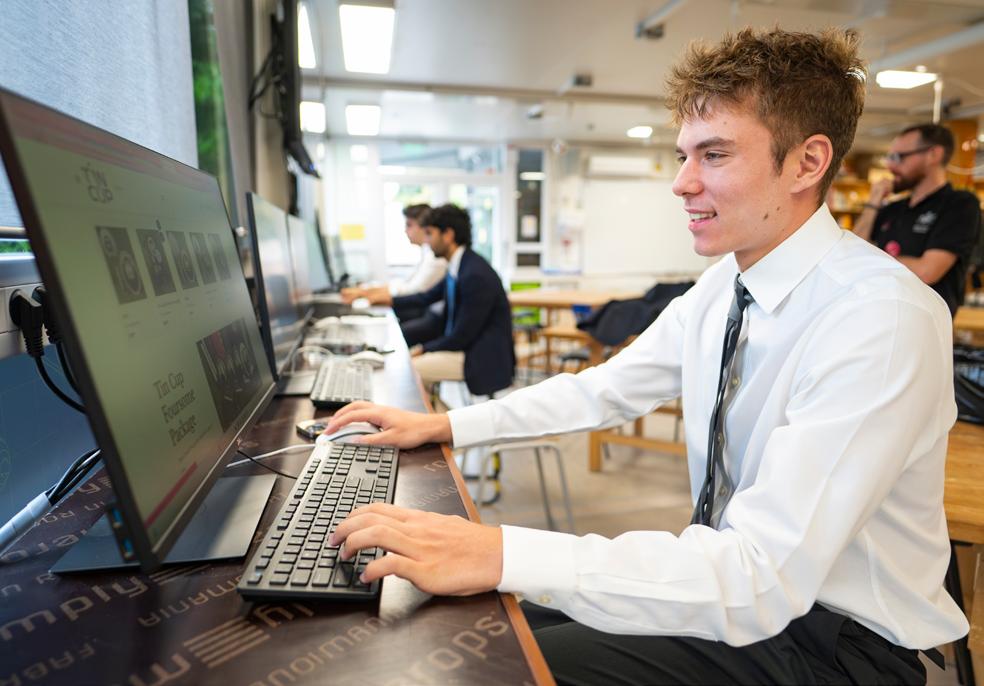
AS
Unit 1: Lifestyle, Transport, Genes and Health
Unit 2: Development, Plants and the Environment Unit 3: Practical Biology and Research Skills
A-Level
Unit 4: The Natural Environment and Species Survival Unit 5: Energy, Exercise and Coordination Unit 6: Practical Biology and Investigative Skills
structure and role of DNA and RNA, protein synthesis, monohybrid inheritance, gene mutations, gene therapy, cell ultrastructure, meiosis, genotype and environmental influence, stem cell research, biodiversity, adaptations and natural selection, taxonomy, plant cell structure, transport of water in plants and plant products.
At A-Level:
You will study the following units: photosynthesis, global warming, evolution, nutrient recycling, DNA profiling and PCR, the structure of bacteria and viruses, infectious diseases and immunology, anaerobic and aerobic respiration, the heart, homeostasis, the nervous system, impact of exercise on the body, hormonal coordination, brain structure and development, imbalances in brain chemicals and the Human Genome Project.
An A-Level in Biology is a high-status qualification which supports a wide range of university courses and careers. It is of particular relevance to careers involving biomedical science, with employment opportunities in the fields of ecology or medicine. However, the analytical skills developed throughout the course are applicable to an even wider range of career choices.
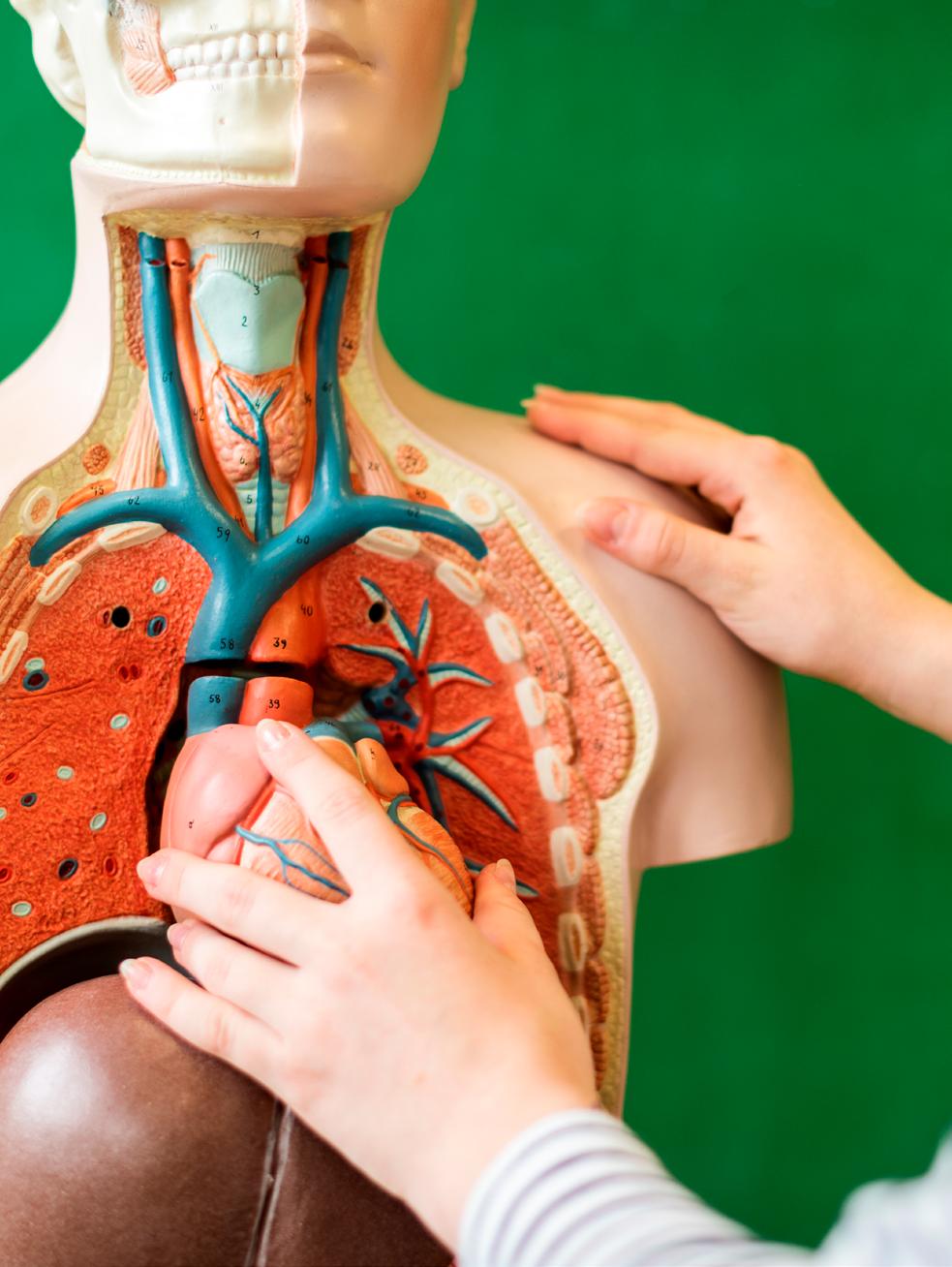
Examination Board EDEXCEL
Course Code
To be successful in this course, you should ideally:
• Achieve a Grade 7 in Chemistry IGCSE and also in Mathematics and either Biology or Physics, as the knowledge and skills in these subjects are important in the study of Chemistry at IAS/IAL;
• Demonstrate a genuine interest in the Chemical Sciences;
• Have the ability to conduct practical work accurately and safely.
AS and A-Level Chemistry builds on and expands the knowledge and skills acquired at IGCSE level. The syllabus is built around the themes of ‘The Core Principles of Chemistry’, ‘Application of Core Principles of Chemistry’, ‘Chemistry Laboratory Skills’ and ‘General Principles of Chemistry’.
You will cover the major topics in Chemistry, including molar calculations, structure and bonding, energetics, rates, equilibria, group chemistry, transition metals and a range of organic chemistry and associated experimental skills. You will apply the concepts you learn to a range of different problems set in a variety of contexts.
You will also develop your practical skills by carrying out a minimum of 16 core practicals and additional ones where appropriate.
The focus throughout the course is on the development of knowledge and understanding of key Chemistry concepts and the application of these concepts in novel contexts.
XCH11 / YCH11

The course fosters creative thinking and problem-solving skills, which are transferable to future career paths.
A-Level Chemistry is an ideal choice for students wishing to study the Sciences at university and is also highly compatible with A-Level Biology.
AS
Unit 1: Structure, Bonding and Introduction to Organic Chemistry
Unit 2: Energetics, Group Chemistry, Halogenoalkanes and Alcohols
Unit 3: Practical Skills in Chemistry I
A-Level
Unit 4: Rates, Equilibria and Further Organic Chemistry
Unit 5: Transition Metals and Organic Nitrogen Chemistry
Unit 6: Practical Skills in Chemistry II
At AS Level:
You will study the following topics: formulae, equations and amount of substance, atomic structure and the periodic table, bonding and structure, introductory organic chemistry and alkanes, energetics, intermolecular forces, redox chemistry and groups I, II and VII, introduction to kinetics and equilibria and organic chemistry: alcohols, halogenoalkanes and spectra.
At A-Level:
You will study: kinetics, entropy and energetics, chemical equilibria, acid-base equilibria, organic chemistry: carbonyls, carboxylic acids and chirality, redox equilibria, transition metals and their chemistry, organic chemistry: arenes, organic nitrogen compounds: amines, amides, amino acids and proteins.
An A-Level in Chemistry is classed as a facilitating subject, making it a high-status qualification which supports a wide range of university courses and careers. Many university courses are often combined with Mathematics or Biology.
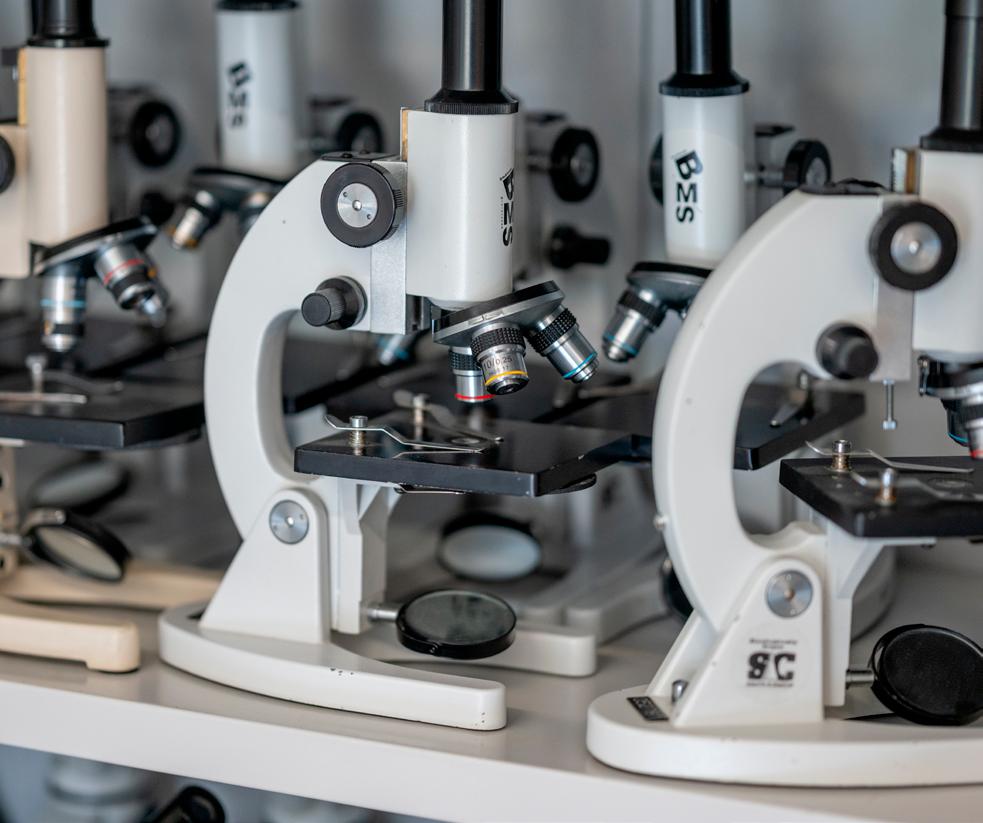
An A-Level in Chemistry is particularly relevant to careers involving chemical engineering, veterinary sciences or medicine, with employment opportunities in the fields of science-based industries, medical fields or agriculture. However, due to the analytical skills developed, a qualification in Chemistry is transferrable to a wide variety of careers, including finance and business.
To be successful in this course, you should ideally:
• Achieve five IGCSE A-C grades in other subjects;
• Demonstrate a high level of English, as you will be expected to carry out extended reading on the topics covered;
• Be able to undertake work independently;
• Have an interest in the current issues affecting our planet.
The AS and A-Level Geography course builds upon skills gained at IGCSE Level study. You will increase your understanding of our planet’s physical, human and environmental processes.
You will develop the ability to handle and evaluate different types and sources of information and develop the skills to think logically. You will also undertake primary research and be expected to present an ordered and coherent argument in a variety of ways.
AS Level:
You will study two units: Paper 1 relates to Core Physical Geography, where you answer three compulsory data response questions and a choice of one essay from three. The units which are studied: hydrology and fluvial geomorphology, atmosphere and weather, and rocks and weathering.

AS
Paper 1: Core Physical Geography
Paper 2: Core Human Geography
A-Level
Paper 3: Advanced Physical Geography Options
Paper 4: Advanced Human Geography Options
Paper 2 focuses on Core Human Geography. The exam structure is the same as Paper 1. The human geography units which are studied are population, migration and settlement dynamics. This unit will be assessed by examination.
A-Level:
You will study two units:
Paper 3 relates to Physical Geography Options, where you must answer two questions, each on a different topic. The topics you will study are tropical, coastal, hazardous, and arid and semi-arid environments.
Paper 4 relates to Human Geography Options, where, like Paper 2, you must answer two questions, each on a different topic. The topics you will study are production, location and change, environmental management, global interdependence and economic transition.
Geography is a well-respected subject which can lead to many university courses and career options. Relevant careers include chartered surveying, land and water management, town and transport planning, sustainability, development, teaching, conservation, environmental consultancy, tourism and social welfare.

To be successful in this course, you should ideally:
• Achieve a minimum of Grade B in History;
• Achieve five IGCSE grades A-C in other subjects;
• Demonstrate a high level of English, as you will be expected to carry out extended reading on the topics covered;
• Demonstrate advanced essay writing skills;
• Possess advanced skills in interpretation and analysis.
AS and A-Level History builds upon skills gained at IGCSE Level study.
The emphasis is again on historical knowledge and the analytical skills required for historical research. Students learn about cause and effect, continuity and change, similarity and difference, and are required to interpret and analyse historical evidence as part of their studies.
At AS Level
Students will study the following:
Component 1: Document question. Students will study The Industrial Revolution in Britain 1750-1850.
This is an exploration of source material in a historical context.
Component 2: Outline study. Students will study Modern Europe 1750–1921.
Students will study two themes from the following three:
• Liberalism and Nationalism in Germany 1814-1871
• France 1774-1814
• The Russian Revolution 1894-1921.
Students will study the following:
Component 3: Interpretations question. Students will study The Origins and Development of the Cold War, 1941–1950.
Students will consider different interpretations of the period to develop an understanding of the nature of the discipline of History and consider why historians produce different interpretations of the same events.
Component 4: Depth study. Students will study European history in the interwar years, 1919–41.
They will study two themes from the following four: Mussolini’s Italy 1919– 1941, Stalin’s Russia 1924–1941, Hitler’s Germany 1929– 1941, and Britain 1919-39.
The course is viewed as a high-status qualification which supports a wide range of university courses and careers. It is of particular relevance to careers involving law, politics, education, journalism and the media, with employment opportunities in the fields of the civil service and government, public relations, marketing and the management of historical sites.
AS
Component 1: Document question
Component 2: Outline study
Component 3: Interpretations question
Component 4: Depth study
– 40%
– 20%
– 60%
– 30%
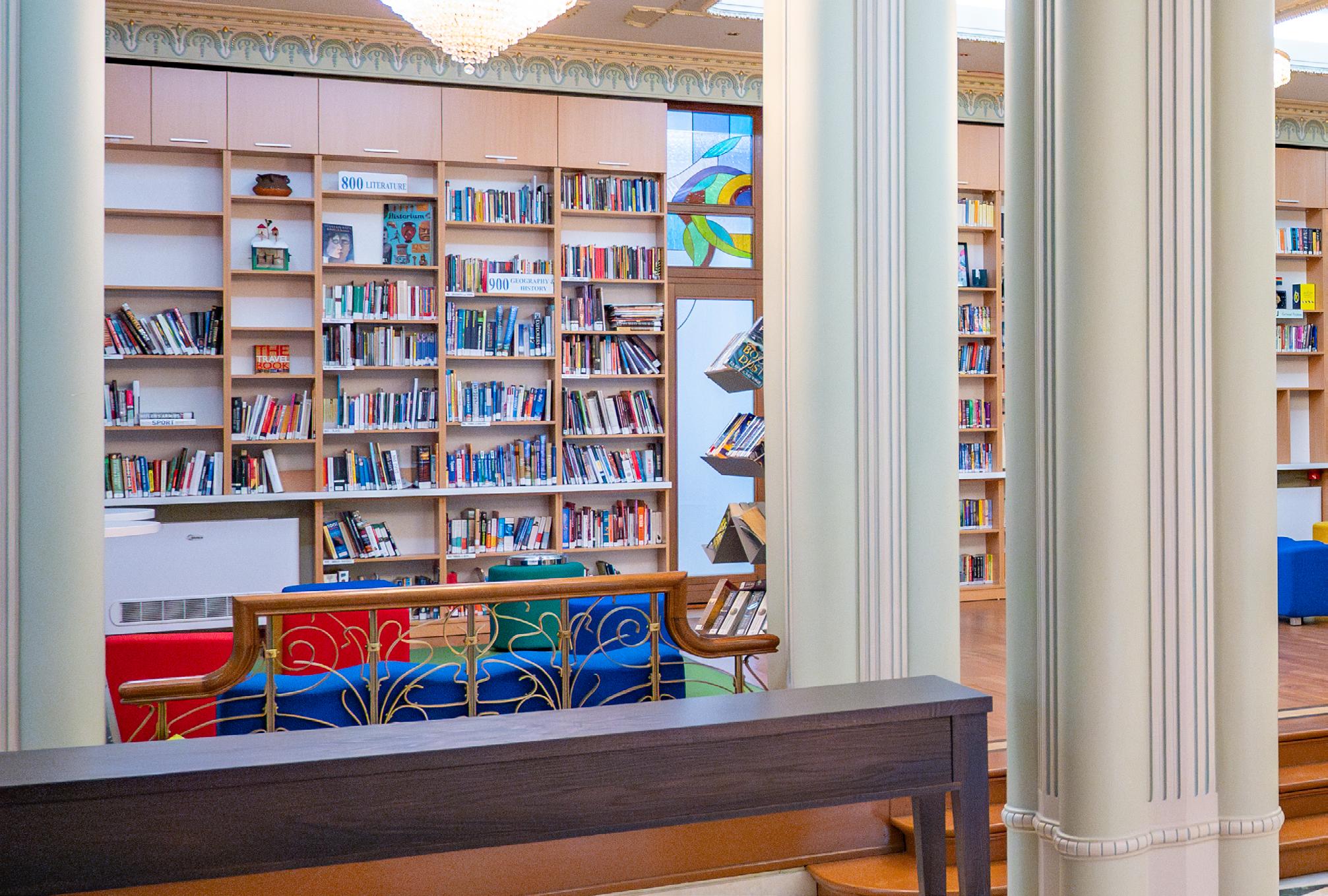
Examination Board
Course Code
To be successful in this course, you should ideally:
• Achieve a Grade 7 in Physics IGCSE and also in Mathematics, and to be continuing with Mathematics at IAS-level as mathematical skills are essential in the study of Physics at IAS/IAL;
• Demonstrate a genuine interest in the Physical Sciences;
• Have the ability to conduct practical work accurately and safely.
AS and A-Level Physics build on the skills acquired at IGCSE level. The syllabus includes the main theoretical concepts fundamental to the subject and the development of practical skills. The emphasis throughout is on the understanding of concepts and the application of these ideas in novel contexts. The course will foster creative thinking and problem-solving skills, which are transferable to future career paths. A-Level Physics is ideal for students who want to study Physics or a wide variety of related subjects at university or to follow a career in science.
The core aims of A-Level Physics are to:
• Provide seamless progression from IGCSE and enable students to sustain and develop an enjoyment of, and interest in, physics and its applications;
• Develop an understanding of the link between theory and experiment and foster the development of skills in the design and execution of experiments;
• Develop essential knowledge and understanding in physics and, where appropriate, the applications of
EDEXCEL
XPH01 / YPH01

physics, with an appreciation of their significance and the skills needed for the use of these in new and changing situations;
• Demonstrate the importance of physics as a human endeavour that interacts with social, philosophical, economic and industrial matters;
• Develop a deep understanding of 'How Science Works'.
Topics covered: Mechanics, including rectilinear motion, forces, energy and power. Materials, including fluid flow, viscosity and the properties of solid materials; Waves, including diffraction, refraction and polarization and an introduction to Quantum Physics; Electricity, including circuit design and the conductivity of materials.
AS
Unit 1: Physics on the Go Unit 2: Physics at Work Unit 3: Exploring Physics
A-Level
Unit 4: Physics on the Move Unit 5: Physics from Creation to Collapse Unit 6: Experimental Physics
Topics covered: Further Mechanics, including circular motion, gravitation and momentum; Fields, including electric fields, magnetic fields and particle physics; Radiation and Waves, including nuclear decay, oscillations, cosmology and astrophysics.
The skills you will gain as a physicist can open up a wide range of career options, such as medicine, engineering or aeronautics.
Physics also has direct applications in fields such as the food & cosmetics industries, energy production and forensic science; plus, the analytical skills of a physicist are valuable in areas such as finance, education and design.
Those who choose to pursue a career in research may find themselves investigating the origins of the Universe, new and smart materials, particle physics or quantum effects.
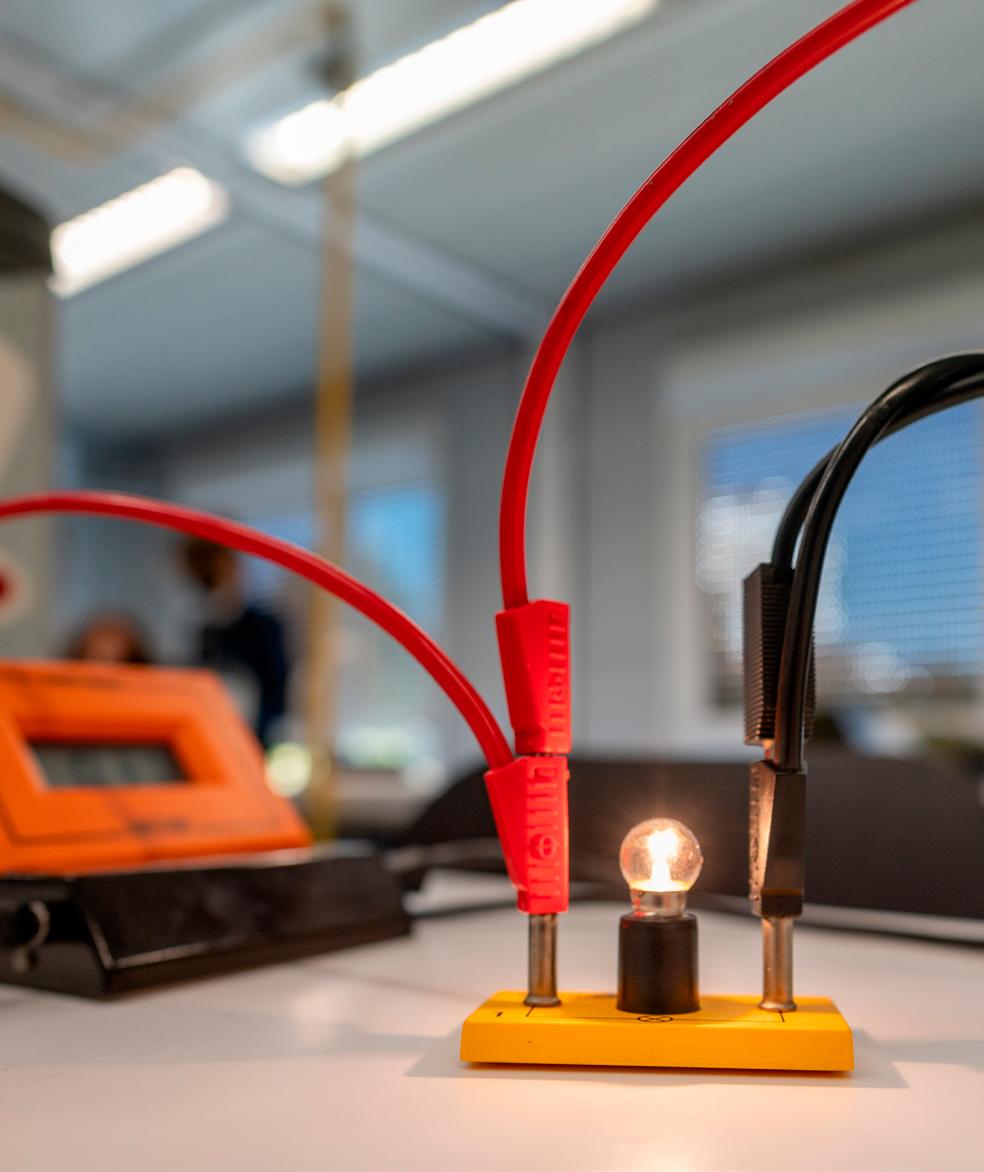
Examination Board
Course Code
To be successful in this course you should ideally:
• Achieve a minimum of Grade B in Art at IGCSE;
• Achieve a minimum of Grade C in English at IGCSE;
• Believe that for every student, ART must be a passion;
• Demonstrate imagination, enthusiasm and curiosity;
• Commit to working outside contact time independently.
The course is wide-ranging, covering many approaches to creating Art and Design, with four broad aims to develop your individual work, imagination, creativity and intuitive powers. You will learn about and understand the contexts and inter-relationships between art, craft and design.
TAs students will naturally be at different levels to start with – a good GCSE grade in Art does not automatically prepare you for AS Level, but it is very helpful. Students will progress at their own pace to a point where skills and confidence are sufficient to produce independent work. The course structure helps you towards this goal by using gradual progression from project-based, teacher-led assignments to the introduction of independent study.
All the creative industries are a growth area in society today. Fine art covers a vast variety of media and techniques. These include traditional drawing, painting and sculpture, alongside the more contemporary areas such as printmaking. Through practical work, you will have the opportunity to develop these interests further.


You are encouraged to explore media and other artists’ works to the full to best express your ideas and develop your skills.
You will complete two units of work in AS and a further two in A-Level. You will develop skills in a variety of media in response to themes set by the teacher and the examination board. Students will explore images, artefacts and resources relating to a wide range of art, craft and design from the past and recent times. They will respond to these through practical and critical activities.
All students will be introduced to ideas, processes, materials and techniques relevant to different aspects of art and design. Assignments will explore drawing, painting, sculpture, mixed-media and contextual study work, which will inform coursework and contribute to a portfolio for application to Art foundation courses. It is also expected that you keep a sketchbook/work journal.
This course is of particularly relevant to careers involving Art and Design, Fine Art and 3D design – including model making, stage design, sculpture, graphics or illustration, with employment opportunities in professional creative industries.
The course is designed for those who wish to undertake further studies in Art, Craft and Design, usually at Art College or in further education or for those looking to take up careers for which an art background is relevant. These might include advertising, publishing, architecture, museums, theatre, television or fashion.
To be successful in this course, you should ideally:
• Achieve five IGCSE/GCSE at grade A-C in other subjects;
• Be interested in Business and Enterprise.
AS/A-Level Business Studies is built around a core unit with an enterprise theme to enable you to think of a new business idea and how you might research and develop it. You will think about how your learning applies to your own business idea. The qualification will introduce you to international business, equipping you either to work in or to manage a business in an international context.

This course will appeal to students who:
• Have an interest in how a business operates;
• Enjoy studying a subject that is relevant to their own lives and experiences;
• Would like to do a subject that offers opportunities for a career in business;
• Would like to learn how to make business decisions and solve business problems;
• Want to keep their options open, as Business Studies can be a useful choice for a wide range of careers.
AS Level:
A Unit 1 - Business Enterprise
Unit 2A - Business Structures and Processes.
A-Level:
Unit 3 - Strategic Business Decisions
Unit 4A - Business in a Global Context.
A qualification which supports a wide range of university courses and careers.
It is of particular relevance to careers involving business or ICT with employment opportunities in the fields of retail, administration, business management or self-employment.
Unit 1:
Unit 2A:
Examination
Section A: Supported multiple-choice questions
Section B: Questions based on data
Examination
Section A: Supported multiple-choice questions
Section B: Questions based on data
Unit 3: Examination
Section A: Questions based on data
Section B: Case study and questions
Unit 4A: Examination
Section A: Questions based on data
Section B: Decision-making report and questions

Examination Board
CIE A-Level
Course Code 9618
You don’t have to have studied Computer Science at GCSE. However, you must prove your enthusiasm for the subject through your own learning outside of School, i.e. robotics programming, learning a programming language, etc. A high grade in Mathematics would be an advantage due to the logical thought processes needed for this course.
The syllabus aims to encourage students to develop their understanding of the fundamental principles of computer science and how computer programs work in a range of contexts. Students will also develop their computational thinking and use problem-solving to develop computerbased solutions using algorithms and the programming language of Python.
AS and A-Level Computer Science will help develop a range of skills, such as thinking creatively, analytically, logically and critically.
They will also be able to appreciate the ethical issues that arise with current and emerging computing technologies.
Theory
• Information Representation;
• Communication and Internet Technologies;
• Hardware;
• Processor Fundamentals;
• System Software;

AS Paper 1: Paper 2:
A-Level Paper 3: Paper 4:
• Security, Privacy & Data Integrity;
• Ethics & Ownership;
• Database and Database Modelling;
• Fundamental Problem Solving and Programming;
• Algorithm design & Problem-solving;
• Data Representation;
• Programming;
• Software Development.
At A-Level you will study:
• Advanced Theory;
• Data Representation;
• Communication and Internet Technologies;
• Hardware;
• System Software Security;
• Monitoring and Control systems;
• Further Problem Solving and Programming;
• Computational Thinking & Problem-Solving;
• Algorithm Design Methods;
• Further Programming;
• System Software Security;
• Software Development.
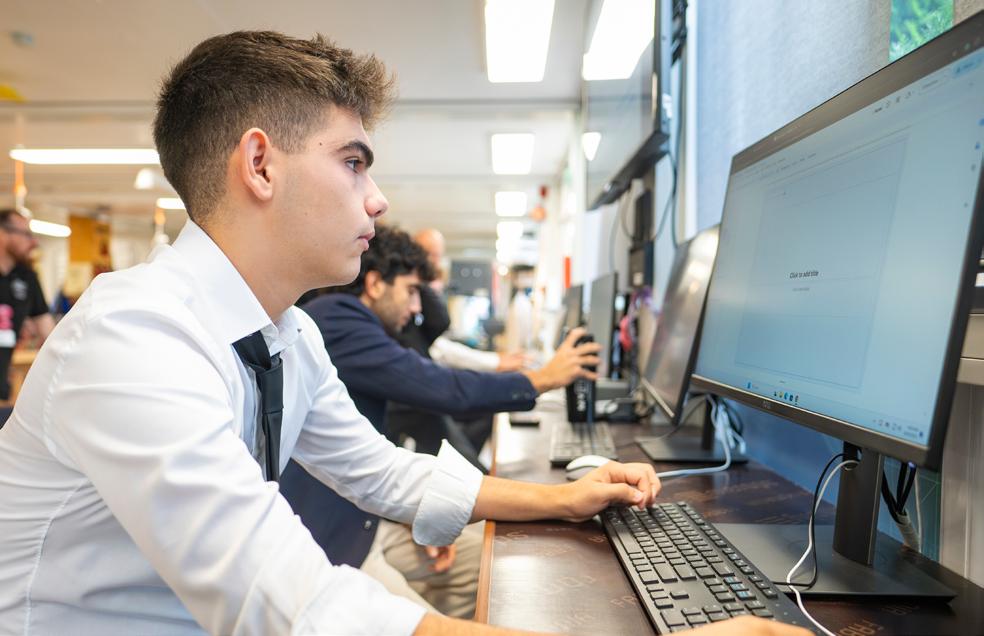

Examination Board
Course Code
To be successful in this course, you should ideally:
• Achieve a minimum of grade B in Design and Technology (Resistant Materials or Product Design) at IGCSE;
• Demonstrate lateral thinking, enthusiasm and curiosity for how things work.
For the theory element of this course, you will develop an awareness of the significance of design and technology to society, learn more about production processes and industrial practices and develop critical evaluation skills which can be employed in a variety of technical, aesthetic, economic, environmental, social and cultural contexts. You will learn how to apply this knowledge and understanding of a wide range of materials and the processes used in product design and manufacture.
The purpose of this component is to undertake a smallscale design and make and evaluate the project, which will test your skills in designing and creating a prototype. You will need to individually analyse a given contextual challenge, set by Pearson, by 1st June in the calendar year preceding the year in which the qualification is to be awarded.
You select a problem to focus on, develop a range of potential ideas and then realise one through practical making activities. The project must allow you to apply knowledge and understanding in a product development process to design, make and evaluate prototypes.
The course comprises two components that, when combined, make up the full AS qualification.
You can progress from this qualification to tertiary education or work-based study, including product design, engineering and architecture, further training in the design, creative, engineering or manufacturing industries, and employment in a relevant sector.
This course is particularly relevant to design skills and the ability to visualise new ideas, which can be useful in many job families, such as marketing, construction, engineering and manufacturing.

Component 1: Principles of Design and Technology (Paper code: 8DT0/01)
Written examination: 2 hours | 50% of the qualification
100 marks
Content topic overview
• Materials
• Performance characteristics of materials
• Processes and techniques
• Digital technologies
• Factors influencing the development of products
• Effects of technological developments
• Potential hazards and risk assessment
• Digital technologies
Assessment overview
The paper includes calculations, short-open and open-response questions. as well as extended-writing questions focused on:
• Design decisions and outcomes, against a technical principle, for prototypes made by others
• Wider issues in design technology, including social, moral, ethical and environmental impacts
Component 2: Independent Design and Make Project (Paper code: 8DT0/02)
Non-examined assessment | 50% of the qualification
100 marks
Content overview
• Students are to analyse a given contextual challenge individually, selecting a problem to focus on; they develop a range of potential ideas and then realise one through practical making activities.
Assessment overview
There are four parts to the assessment:
• Part 1: Identifying opportunities for design
• Part 2: Designing a prototype
• Part 3: Making a final prototype
• Part 4: Evaluating own design and prototype

Examination Board
Course Code
To be successful in this course, you should ideally:
• Have an interest in Drama and regularly take part in theatrical events;
• Achieve a minimum of grade B at Drama GCSE;
• Achieve five GCSEs at grade A*-C in other subjects including English;
• Be able to analyse theatre in interesting and original ways;
• Be prepared to participate in rehearsals and performances, which may occur outside of lesson times.
The aims and objectives of this qualification are to enable students to:
• Develop an analytical framework for making, performing, interpreting and understanding drama and theatre;
• Develop an understanding and appreciation of how the social, cultural and historical context of performance texts have influenced the development of drama and theatre;
• Understand the practices used in Twenty-First Century theatre-making;
• Participate as a theatre-maker and as an audience member in live theatre;
• Understand and experience the collaborative relationship between various roles within the theatre;
• Analyse and evaluate their own work and the work of others.
EDEXCEL
8DR0 / 9DR0
Component 1: Exploration and Performance
Practical and Written Coursework (60%)
Content overview
• A group performance of a performance text;
• A monologue or duologue performance from a different performance text;
• A 2000–2500 word portfolio evaluating the workshop and performance process;
• Analyse and evaluate their own work and the work of others.
Written examination: 1hr 45’ (40%)
Content overview
• Practical exploration and study of a performance text –Students answer two extended response questions on how they might interpret and direct an unseen extract from a text studied in class;
• Live theatre evaluation – Students answer one extended response question from a choice of two, requiring them to analyse and evaluate a live theatre performance that they have seen.

Component 1: Devising
Practical and Written Coursework (40%)
Content overview
• A group performance of a performance text;
• A devised performance from stimuli;
• A 2500-3000 word portfolio evaluating the performance process.
Practical (20%)
Content overview
• A group performance/design realisation of one key extract from a performance text;
• A monologue or duologue performance/design realisation from one key extract from a different performance text.
Written examination: 2 hours 30 minutes 40% of the qualification
Content overview
• Live theatre evaluation – choice of performance;
• Practical exploration and study of a complete performance text – focusing on how this can be realised for performance;
• Practical exploration and interpretation of another complete performance text in light of a chosen theatre practitioner – focusing on how this text could be reworked for a contemporary audience.
Examination Board
Course Code
To be successful in this course, you should ideally:
• Achieve five IGCSE/GCSE passes at grades A-B in other subjects;
• Be interested in Business and Enterprise.
In AS/A-Level Economics, you’ll look at the fundamental forces which affect our lives, such as employment, prices, international trade and poverty.
Economists are often in healthy debate with each other over these issues. This controversy makes Economics lively and interesting and allows you the opportunity to make your own judgement and form your own opinions. There are several definitions of economics, each trying to encapsulate the subject’s essence. However, most textbooks seem to agree that economics concerns

EDEXCEL IA-Level
allocating society’s scarce resources amongst the many alternative uses to which they could be put.
In Year 12, you’ll focus on both Microeconomics and Macroeconomics. Microeconomics addresses issues such as: 'Why are house prices so high?', 'Can pollution effectively be controlled?' and 'Should governments interfere with markets?' The macroeconomic issues covered include: 'Why does the Government have an inflation rate target, and how does it affect us?', 'What happens to the economy if people decide to spend more?' and 'How are we affected by the Chinese and Indian economies?'.
The aims of the Advanced GCE in Economics are to:
• Develop an interest in and enthusiasm for the study of the subject;
• Appreciate the contribution of economics to the understanding of the wider economic and social environment;
• Develop an understanding of a range of concepts and an ability to use these concepts in a variety of different contexts;
• Help students to use an enquiring, critical and thoughtful approach to the study of economics and an ability to think as an economist;
• Develop in students the skills, qualities and attitudes which will equip them for the challenges, opportunities and responsibilities of adult and working life.
Unit 1:
Unit 2:
Examination consisting of multiple-choice questions, short answer questions, a data response question and one essay question from a choice of two.
Examination consisting of multiple-choice questions, short answer questions, a data response question and one essay question from a choice of two.
Unit 3:
Unit 4:
AS Level:
Examination consisting of two essay questions from a choice of four topics and one data response question out of a choice of two questions.
Examination consisting of one essay question with two parts from a choice of three topic areas and one data response question out of a choice of two questions.
Unit 1: Competitive Markets — How They Work and Why They Fail
Unit 2: Managing the Economy
A-Level:
Unit 3: Business Economics and Economic Efficiency
Unit 4: The Global Economy
A qualification which supports a wide range of university courses and careers.
It is of particular relevance to careers involving business, economics, law or politics, with employment opportunities in the fields of retail, administration, business management, politics or self-employment.

Examination Board
Course Code
EDEXCEL IA-Level
XFR01/YFR01 French
XGN01/YGN01 German
XSP01/ YSP01 Spanish
Students who would benefit most from studying this qualification are likely to have a qualification such as an IGCSE in French/German/Spanish at Grade 6 or above.
You will enhance your linguistic skills and develop your capacity for critical thinking based on your knowledge and understanding of the language, culture and society of the country or countries where the language is spoken.

Unit 1: Spoken expression and response
Discussion based on two of the four topic areas studied 8-10 minutes 30% of the total IAS
Unit 2: Understanding and written response
2 hours and 30 minutes 70% of the total IAS
Questions are based on all four IAS topic areas studied.
Section A: Listening
Section B: Reading and Grammar
Section C: Writing – one essay of 240 -280 words
Unit 3: Understanding and spoken response examination
Debate on any issue chosen by the student, followed by a discussion of at least two further issues chosen by the teacher/examiner from any of the three IAL general topic areas.
11-13 minutes
30% of the total IA2
Unit 4: Research, understanding and written response
Questions are based on all seven IAS, and IAL topic areas studied. Section A: Listening
Section B: Reading and Grammar
Section C: Writing – One essay of 300-400 words that relate to a topic, a literary text or a film studied from the prescribed list
2 hours and 30 minutes 70% of the total IA2
1. Youth matters
• Family relationships and friendships
• Peer pressure and role models
• Music and fashion
• Technology and communication
2. Lifestyle, health and fitness
• Food and diet
• Sport and exercise
• Health issues
• Urban and rural life
3. Environment and travel and transport
• Natural disasters and weather
• Climate change and its impact
• Energy, pollution and recycling
4. Education and employment
• Education systems and types of schooling
• Pupil/student life
• Volunteering and internships
• Jobs and unemployment
5. Technology in the French/German/Spanish-speaking world.
• Scientific advances
• Technological innovations
• Impact on life and environment
6. Society in the French/German/Spanish-speaking world.
• Migration
• Equality
• Politics
• Customs
7. Ethics in the French/German/Spanish-speaking world.
• Beliefs
• Law and order
• Moral issues (e.g. euthanasia, adoption, genetic modification)
In addition to the three topic areas, students study either a historical/geographical topic, a prescribed set text, or a prescribed film.

You will read contemporary and more classical works of literature and watch films to develop knowledge and understanding of the social issues and political and artistic trends taking place in the countries of your studies.
At AS, you will study four themes; at A-Level, you will study a further three themes, as listed in the table below.
Assessment for AS and A-Level Examination
Structure:
You can take the AS (one year) or the A-Level course (two years). Examinations will take place at the end of each year of the course. The type, weighting and length of the examinations will be the same for AS and A-Level. The difference between the AS exam and the A-Level course are outlined in the table above.
A high-status qualification which supports a wide range of university courses and careers. Of particular relevance to courses involving languages/linguistics, politics or the media. Employment opportunities in fields such as business, education, translation/interpreting or recruitment.
Examination Board EDEXCEL
Course Code
To be successful in this course, you should ideally:
• Achieve a minimum Grade 6 at IGCSE in Mandarin in all sections assessed; speaking, listening, reading and writing.
• Achieve five IGCSE grades A-C in other subjects.
During this course, you will read and listen to authentic foreign language materials and study many aspects of life and culture in the countries where the language is spoken. You will extend and develop your knowledge of the grammar and vocabulary of Chinese and use this to speak, write, read and listen to the language.
At A-Level, you will also learn how to develop an argument and analyse and evaluate, both in speech and writing. All these skills will be practised using material based on several general topic areas.
At AS Level
You will study the following themes:
1. Changes in the contemporary Chinese – speaking world (Family, education and jobs)
2. Chinese culture (traditions, cultural activities)
At A-Level
You will study the following themes:
1. The constant changes in the Chinese-speaking world (communication and technology, economy and environment).

2. The impact of opening up to the outside world since 1978 on modern China (reform, China-UK relationship).
This course is suitable for you if you enjoy language and culture learning. It is clearly of great use if you want to communicate with Chinese speakers or use Chinese for further study (e.g. at university), to work abroad or for companies with international links. You should be wellorganised, thorough and have a good memory and a logical mind.
A high-status qualification, which supports a wide range of university courses and careers. Of particular relevance to courses involving languages/linguistics, politics or the media. Employment opportunities in fields such as business, education, translation/interpreting or recruitment.
The final examinations test you in the four skills of speaking, listening, writing and reading. There are three papers at the end of the AS year and three papers at the end of the A-Level.
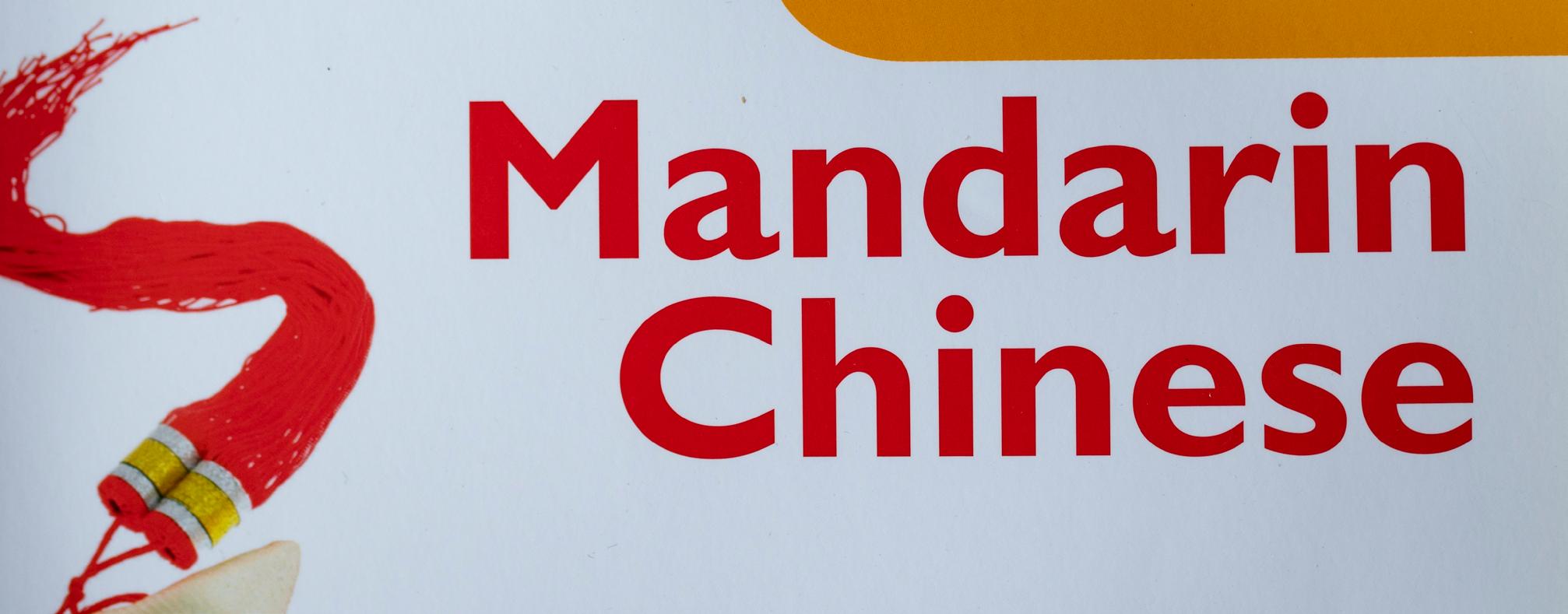
Examination Board
Course Code
Cambridge Assessment International Education
9607
To be successful in this course, you should ideally:
• Achieve a minimum Grade 5 at IGCSE in English
• Achieve five IGCSE grades A-C (9-5) in other subjects.
Learners will develop a critical understanding of international media through different media products and concepts. The learner will also develop practical skills in production processes and technologies. Develop an appreciation for media and its role in their everyday lives. There will be an exploration of the impact of media across a variety of different cultures and how this can influence opinions and values.
You will study the following themes:
• Media Texts

• Technical Elements
• Media Contexts
• At least one of the following: Film, Music, Print, Radio and Podcasts, and Video Games
You will study the following themes:
• Media Regulation
• Postmodern Media
• Power and the Media
• Media Ecology
AS Level:
• Foundation Portfolio – Coursework
• Exam
A-Level:
• Advanced Portfolio
• Exam
A high-status qualification which supports a wide range of university courses and careers. Of particular relevance to courses involving English literature, politics or the media. Employment opportunities in fields such as business, education, journalism, media production or recruitment.

Examination Board
EDEXCEL
Course Code 8MU0/ 9MU0
To be successful in this course, you should ideally:
• Achieve a minimum of grade B at GCSE or be able to compose or perform to a GCSE standard even if the course wasn’t followed;
• Achieve five GCSEs at grade A*-C in other subjects;
• Be proficient in at least one instrument or voice (ABRSM Grade 5 or around five years of studying an instrument);
• Be able to read standard music notation/tablature;
• Be prepared to participate in rehearsals and performances at School, including taking leadership responsibilities.
You will learn about context and the elements of music to enhance and develop your musical interests and skills in composing, performing and analysis skills.
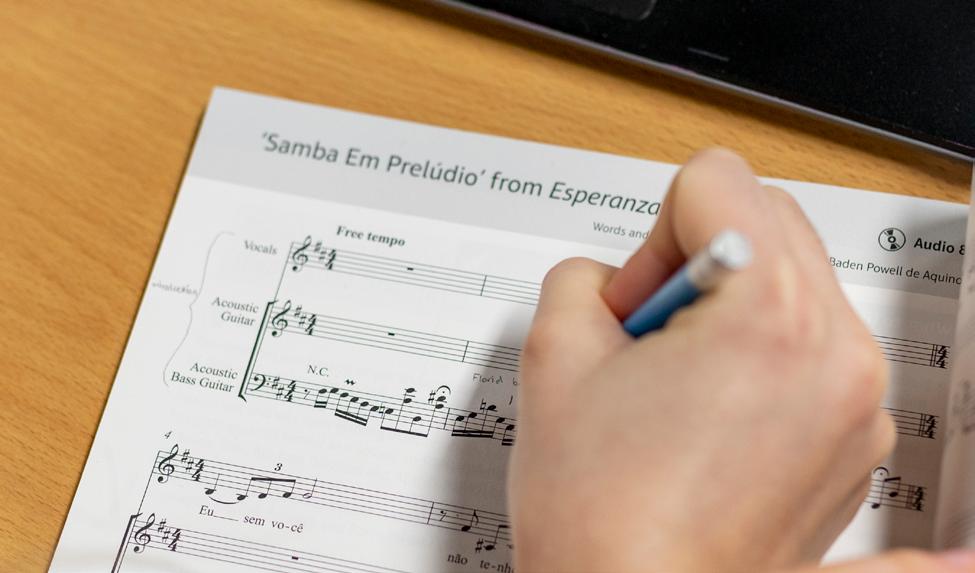
Perform at least eight minutes of continuous music to a high standard – this can be more than one piece and different instruments if wished.
Develop your awareness of stylistic composition. You will compose two pieces, one to a specified brief from the exam board. The total of both compositions must be a minimum of six minutes.
Develop an aural and historical perspective of music by studying 18 set works. These are studied in the same manner as at GCSE, but at a higher level, with a more complex exploration of harmony and tonality and the other elements of music. Set works include: Mozart - The Magic Flute, Pirates of the Caribbean - The Curse of the Black Pearl, Danny Elfman - Batman Returns, Beatles – Revolver, Courtney Pine – Back in the Day, Kate Bush – Hounds of Love.
This qualification supports a wide range of university courses and careers through a mixture of research, analysis, performance and creative skills. It is particularly relevant to careers involving performing arts, arts administration, psychology, education or the media, with employment opportunities in the fields of Arts/Theatre, communication, research, music therapy or teaching.

To be successful in this course, you should ideally :
• Achieve five A-C (or equivalent) IGCSE grades, including a B in Maths, B in English and B in a Science;
• Demonstrate a high level of English, as you will be expected to read psychology papers and other literature;
• Demonstrate essay writing skills;
• Be comfortable using mathematical formulae and interpreting scientific data;
• Have an interest in learning more about human behaviour whilst keeping an open mind.
Psychology is the study of the human mind and behaviour. It focuses on cognitive processes, developmental changes, individual differences, social interactions and physiological processes.
Psychologists design and carry out experiments to determine normal human behaviour and investigate abnormal or problematic behaviour.
The course will cover cognitive psychology, biological psychology and social psychology, including topics such as mental illness and addiction. Besides psychological theories, students will also learn about different experimental methods used within psychology, statistical analysis and the wider implications of psychology in society. The course will use classic and contemporary studies.
Psychology A-Level can lead to many different university and job opportunities, including (but not limited to): medical fields, business & marketing, education, police and criminology, as well as psychology itself.
The course is very useful for those planning on going on to higher education, as it allows for developing skills in reading and understanding scientific literature.


British School of Bucharest
Early Years Foundation Stage | Primar y | Secondar y
42 Erou Iancu Nicolae Street, 077190, Voluntari, Ilfov County, Romania